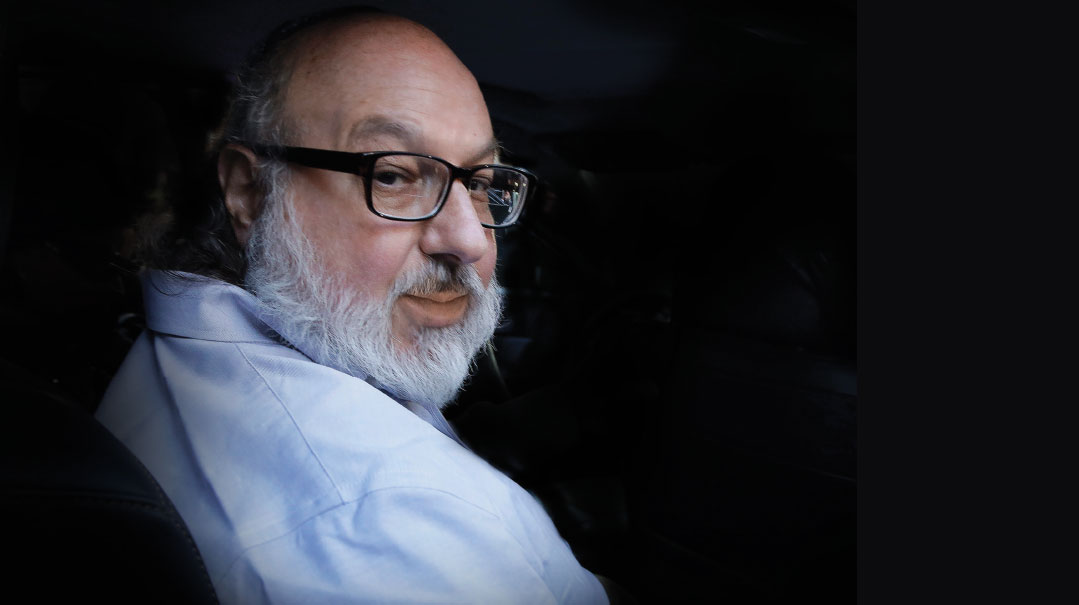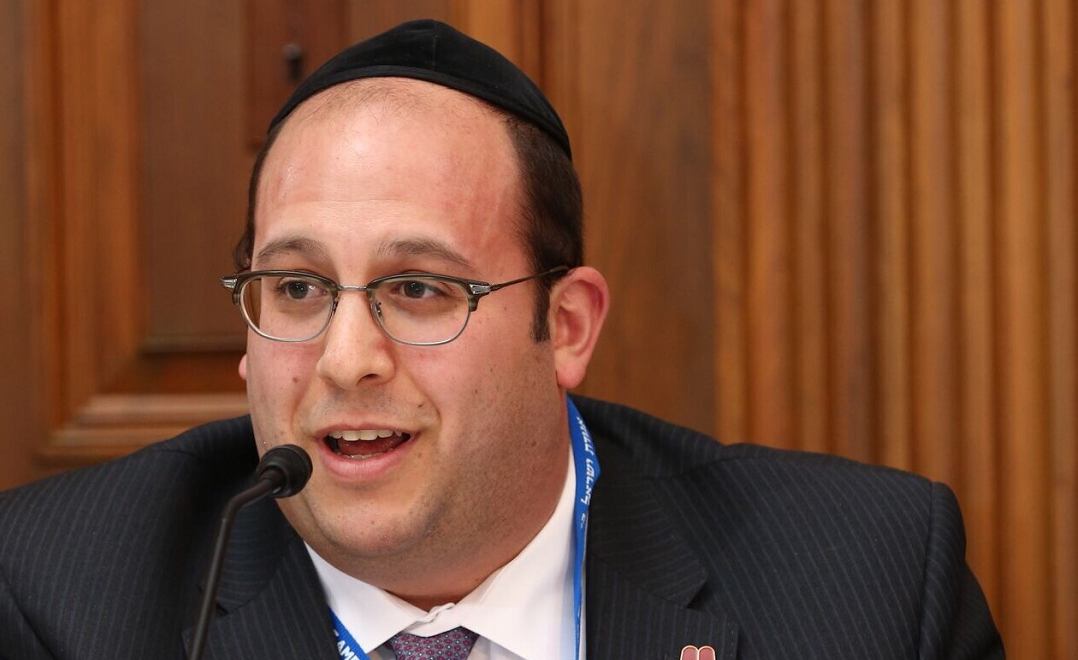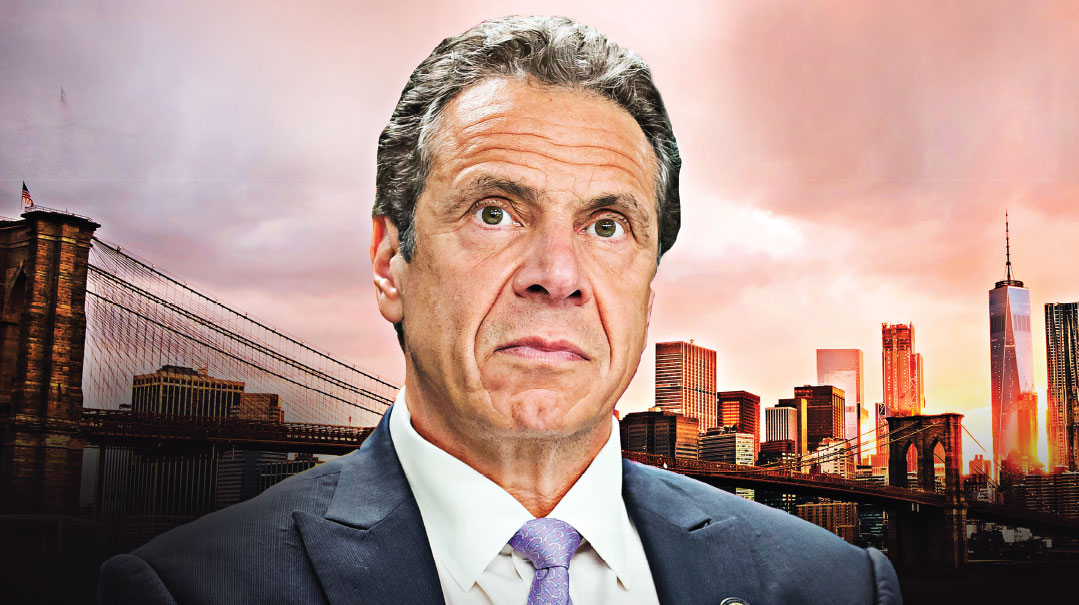Mark Levin, Unplugged

In his new book, Unfreedom of the Press, broadcast star Mark Levin argues that liberals in the media are promoting an agenda and calling it news

Photos: AFP/ ImageBank
A
uthor and right-wing media personality Mark Levin has some choice words to describe the modern media. “The party press is back, and with a vengeance,” Levin writes in his best seller, Unfreedom of the Press. “Indeed, social activism, progressive groupthink, Democratic Party partisanship, opinion and propaganda passed off as news, the staging of pseudo-events, self-censorship, bias by omission, and outright falsehoods are too often substituting for old-fashioned, objective fact gathering and news reporting.”
Levin, who has written six best sellers, is best known as the host of The Mark Levin Show, a nationally syndicated program that runs on 300 stations across the United States. According to Talkers magazine, an industry publication, Levin is the fourth-most-popular radio personality in the country, with 11 million weekly listeners. Prior to his broadcasting career, Levin served as chief of staff to Attorney General Edwin Meese during the Reagan administration, along with other political positions. A native of Philadelphia, Pennsylvania, Levin holds a bachelor’s and law degree from Temple University.
At its heart, Unfreedom of the Press is an argument against press bias in the United States. Levin argues forcefully that most of the mainstream media expresses a liberal worldview and displays a pronounced prejudice when covering President Trump. In the book, Levin traces the history of the press in the United States, and cites numerous examples of what he calls the “utterly dishonest” coverage of the president. He is particularly contemptuous of the New York Times, and devotes an entire chapter to criticism of the newspaper.
In our conversation, I asked Levin about press bias, how social media affects journalism, press coverage of Israel, and who he thinks might win in 2020.
Let’s start with a general question: How did you come up with the idea for this book?
“I studied history and the American Constitution and one of the areas I thought I really needed to dig into was this notion of freedom of the press. Where does it come from? Why is it so important? It seems pretty obvious, and yet there’s this big debate over what it means.
“I looked at the ideological and philosophical leanings of the press through various surveys and read the work of various professors who teach journalism. That took me into other areas, including the history of the press in America. Then I looked at how the media in the United States acts. Do they report the news? As I explain in the book, at one point they did, and maybe some of them do today. But much of what they do today promotes the agenda of the left and the Democrat Party and social activists.”
What was the turning point?
“Well, that’s a great question. During the beginning of the Progressive movement, at the beginning of the last century, a decision was made by a lot of these newspapers that rather than act as a people press, they would focus instead on having a handful of masterminds or self-described elites determine what news is and then launder that through a progressive ideology.”
Who’s an early example of that trend?
“Walter Lippmann, who was an iconic journalist back in the early 1900s, was originally sympathetic to the Russian revolution and a socialist but then eventually abandoned the cause. He said, and it’s repeated today, that the American people are just too busy to be focused on news or determine what news is, so we need to create a professional standard. John Dewey, one of the leading intellectuals in the Progressive movement, also said that we cannot allow news to be reported simply as fact. It has to have some kind of social function.
“That was the movement, and the pursuit of objective truth with the taint of the progressive agenda held for a while. The turning point was in the 1960s during the uprisings in American cities [following the assassination of Martin Luther King Jr.]. There was a hard turn by much of the media and that turn was toward social activism. They called it public journalism or community journalism.”
Why, in your opinion, is the press mostly made up of liberal journalists?
“I looked closely at that. It starts with our universities and colleges. It’s an incestuous thing. Faculty at the liberal, Ivy League schools are involved in hiring other faculty, who later hire the next generation of faculty. There’s very little intellectual or philosophical diversity in our newsrooms as a result. Furthermore, as I pointed out in the book, there’s a large number of so-called journalists who work for Democrat politicians, who go back and forth between politics and journalism. I was able to identify more than two dozen from the Obama administration. Of course, there are many more than that. There are some Republicans who do the same, but not as many.
“The left, the progressives, many decades ago made a determination — and a wise one — that these institutions, whether it’s government-related, whether it’s the Democrat party, whether it’s the economy, whether it’s the academy, whether it’s the media, that they need to have an enormous influence there. [They wanted] to push the nation’s agenda away from constitutionalism and toward some kind of post-constitutionalist construct. They are attracted to these power centers like mosquitoes are to light.”
But given we’re in the age of ratings and money, it’s in the interest of mainstream outlets to reach as many people as possible. So how do you explain the liberal bias if half the country is conservative?
“Because they’re driven by ideology. CNN’s ratings are in the tank. The New York Times was going broke until a billionaire from Mexico bought a significant percentage of its stock. The Washington Post was going bankrupt until Jeff Bezos from Amazon bought it. I would argue that they’re not so much interested in ratings and hits and subscriptions as they are in ideology. In the end, that will be their undoing, because you’re going to have all this other competition from people and bloggers and reporters [on the Internet] who don’t have to funnel their thinking and their comments.”
Do you find it ironic that you devote an entire chapter in your book to criticism of the New York Times, and yet now your book is listed in the Times as a number-one best seller?
“I think it’s wonderful. The irony is obvious. I always make sure my books have a ‘#1 New York Times best seller,’ sticker, particularly this one.”
The tone of the book is more detached and cerebral, which is very different from your show, where you show a lot of passion. Was that a conscious decision?
“I get this question a lot. It’s one thing when you’re doing a project, sitting at your desk and books piled up around you and you’re thinking things through. It’s quite another thing when you are interacting on the radio and your passion can be heard. Callers can also have a particular influence. People say, ‘Wow, you’re different on the radio than in the book.’ If you’ve been on the radio and you write a book, then you know it’s not really that different. And by the way, on radio, I talk about these subjects all the time.”
Do you see any connection between press bias and the rise of social media, a space where objectivity is not really appreciated?
“No, I don’t. What I see is the predictable manifestation of where we are based on a trajectory that’s been taking place for about a hundred years. I look at social media differently from a lot of people. When I look at social media, I see evil people, I see brilliant people, I see people who are just communicating with each other. Use your noggin and decide who you’re going to read and who you’re not going to read. I think the new pamphleteers — as we had during the Colonial period — are on the Internet, and you just have to figure out who’s Thomas Paine and who’s not.”
Are you personally attacked on social media?
“I’m attacked all the time. Stormfront, a neo-Nazi/Klan group, used to put me on their homepage with a big nose and a Jewish star on my forehead. [They] used to call me all kinds of things and obviously that’s pretty sick.
“But on the other hand, you can find really smart people who are doing hard work all over the world, providing information. There’s a reason why Red China wants to shut down the Internet. There’s a reason why these autocracies want to interfere in communication. The reason is they don’t want you and me to get information from independent thinkers. So the media in our country more and more is the praetorian guard for central government, the praetorian guard for the progressive, left ideology pushing a social activism agenda.”
Do you think journalists can remain objective in this kind of environment?
“If they were truly professional and truly had standards, why not? Why can’t they be just like lawyers, doctors, electricians, and plumbers who maintain professional standards? They can entertain all kinds of ideas, but they need to have some level of soberness and self-control. One of the problems we have in media today is very little self-policing.
“We could spend two and a half years on something called ‘Russia collusion with the Trump campaign,’ even though it never happened. Has any head of any news platform been fired because of that? Has any journalist been fired? Of course not. They celebrate each other breaking news and connecting dots where there are no dots.”
Has the World Wide Web been good or bad for news?
“The Web is an inanimate object. My attitude is, if you go into the Web and you’re an ideologue, you’re going to come out of the Web an ideologue. If you really want to be a newsperson and you go onto the Web, you go to pursue news. I am not one of these people who has a problem with technology, with new platforms. I think it’s a magnificent thing.”
Is the press only biased toward the left? Or is there also bias toward the right?
“Yeah, there are some examples in terms of conservative reporting, but the vast majority of those examples are where conservatives say, ‘Hey, I’m a conservative, and now I’m telling you what I think.’ There aren’t many conservative journalists. You’ll notice that the other media outlets keep doing stories on Fox News, because Fox does not conform to their ideology. So they keep attacking the prime-time lineup in particular, which is opinion, which has hosts who don’t pretend to be pure news journalists. That is another big problem. When you look at CNN and MSNBC and a lot of these other outlets, they commingle news and opinion. This is a huge problem because that means you’re rejecting even the pursuit of objective truth, even if it’s not always achievable.”
Whose responsibility is it to solve what you call the unfreedom of the press?
“It will solve itself. We talked earlier about how they’re losing subscribers and viewers. I believe that’s going to continue for a period of time, even though [outlets like the Post and the Times] are subsidized by these billionaires and others. In the meantime, they’re going to do a lot of damage. Much of our media is anti-Trump and you get it day in and day out. They celebrate people like [Rep. Ilhan] Omar or [Rep. Rashida] Tlaib, or AOC [Rep. Alexandria Ocasio-Cortez] who really don’t deserve being celebrated. And it turns people off, so they go elsewhere, and it’s going to continue. When you have a relatively free society, which means people are free to be creative, to invent, to produce, and to improve, there’s going to be more and more alternatives, even more than we have today. I think the modern mass media in America is in very bad shape and over time they’ll marginalize themselves.”
Is there any moderate center in the Democratic Party? And if so, who is their leader?
“I follow this stuff really closely and I can’t find one. It’s not Joe Biden, despite the best efforts of the Democratic Party and the media to pretend he is. I’m not aware of any. Most of them had been drummed out of their party and many of them have become Republican.
“A very radical group [of Democrats are] seeking the nomination. And that includes Joe Biden, who is no friend of Israel. When he was the vice president, he never said a word to Obama about his conduct toward Israel. As an American, I’m very concerned about all these candidates because they’re pushing an ideology that’s very foreign to this country. America is different from Europe. We emphasized individualism, not government, not centralization. The Democrat party today is better described as a left European party. And that’s a problem.”
What do you think about the media coverage of Israel?
“I think it’s very poor. I think the same media outlets [we’ve been discussing] are very hostile to Israel. The perspective of the left in this country, which is the perspective of most of the media in this country, is very negative toward Israel. In the early days when Israel was sort of a nascent country, surrounded by these enemies and attacked, they viewed Israel as the victim, as the underdog. Now that Israel is a strong country — militarily, economically, and in so many other ways — suddenly the page is turned. Now Israel is the offender, Israel is the aggressor and is surrounded by all these poor people in all these poor countries who are being taken advantage of. Of course, that’s absurd.”
What’s the biggest danger for Jews in America today? Neo-Nazis from the right or the radical left?
“Well, evil is evil, isn’t it? My concern is the rise of anti-Semitism, in Europe and in the United States, whatever the source. The threats I receive personally come from the neo-Nazis and Klansmen because they’re from ‘the right.’ That said, I know of nobody in the Republican leadership who embraces neo-Nazis and Klansmen. Nobody. Unfortunately, I know of people in the Democratic Party and in the media who embrace Omar, Tlaib, AOC, [Minnesota attorney general Keith] Ellison and the list goes on. I am deeply concerned about the mainstreaming of anti-Semitism in our society, particularly by the media and by the Democratic Party. It is a growing problem.”
I’m curious, do you think that President Trump is a conservative?
“President Trump does conservative things for the most part. I don’t believe he does it based on a philosophical foundation, but it doesn’t really matter to me. He does it based on his life experiences and his experiences now in Washington DC. I think he’s been absolutely outstanding. I think he’s been more conservative than either of the Bush presidents. I would say he’s been far more conservative than I expected.”
What are your thoughts about 2020? Does Trump have a chance at reelection?
“I think these early polls are utterly meaningless, just as they were four years ago, when nobody gave Trump a chance of winning the Republican nomination, let alone becoming president. In terms of 2020, I think Trump has a good shot at it. I hope so, because otherwise we’re all in trouble in this country.”
Do you think that Jews will cross lines to the Republican Party in 2020?
“As long as a significant percentage of the American Jewish population views progressivism as their faith and the Democrat party as their temple, it’s going to be difficult. I can’t think of a president of the United States who is more supportive of Israel than this president, and yet he is still called in some circles an anti-Semite, which is so bizarre and appalling.” —
(Originally featured in Mishpacha, Issue 767)
Oops! We could not locate your form.













